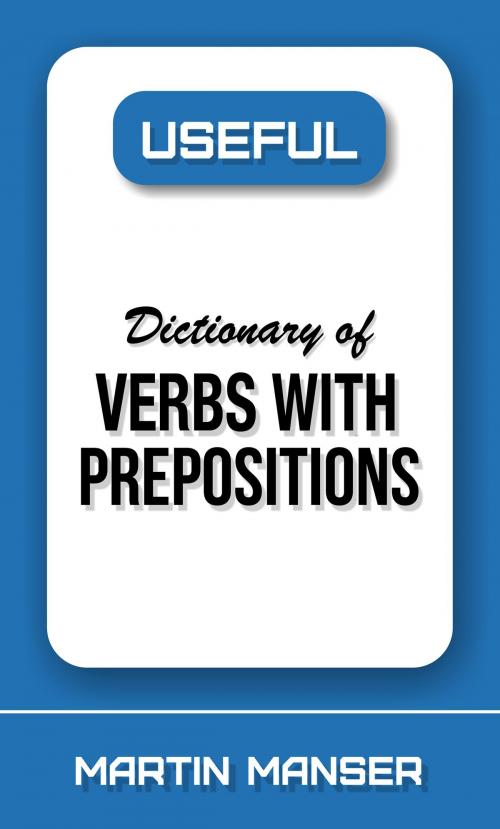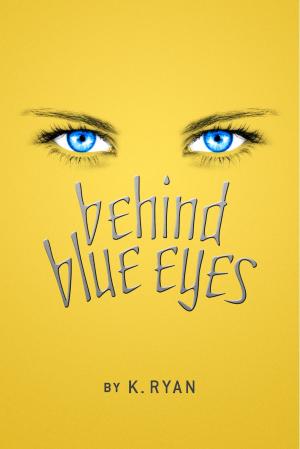| Author: | Martin Manser | ISBN: | 9781483575193 |
| Publisher: | BookBaby | Publication: | July 11, 2016 |
| Imprint: | BookBaby | Language: | English |
| Author: | Martin Manser |
| ISBN: | 9781483575193 |
| Publisher: | BookBaby |
| Publication: | July 11, 2016 |
| Imprint: | BookBaby |
| Language: | English |
Students of English often have difficulties knowing which preposition goes with a particular verb. Do you know which preposition to use with the following verbs: accuse of or for? depend on or at? escape from or off? include in or into? listen to or through? wait for or to? This is where this dictionary will help you. By looking up the verb you will find the preposition, a definition and an example: smile verb smile at turn up the ends of your mouth when you look at (someone) to show you are pleased, happy, amused, etc.: Debbie smiled lovingly at her new baby. Some entries have style markers (formal) or (informal) to help you know the context when to use the verb: protrude verb protrude from (formal) stick out from (somewhere): An umbrella protruded from her bag. sponge verb sponge off or on (informal) get (money, food, etc.) from (someone): Steve’s friends are fed up with him sponging off them. Some entries have notes: protest verb protest about or against or at argue against (something); refuse to agree or accept (something): Animal-rights activists have protested against killer-whale shows. [Note: the American usage of omitting 'against' is becoming more popular in British English.] I protest at the government’s actions. The verbs in this dictionary are mostly non-phrasal verbs that are used with certain prepositions. The verbs are usually used in a literal sense. This is different from phrasal verbs. Phrasal verbs are verbs used with a preposition or adverb whose meaning cannot be deduced from the meanings of the individual words. It usually has a figurative, or non-literal, meaning. For example, if you walk into a room, you enter a room by walking – that is a non-phrasal verb. If you walk into a job, you get a job easily, without having to make much effort – that is a phrasal verb. This dictionary will help you find the correct preposition where one is needed. It contains about 3000 entries.
Students of English often have difficulties knowing which preposition goes with a particular verb. Do you know which preposition to use with the following verbs: accuse of or for? depend on or at? escape from or off? include in or into? listen to or through? wait for or to? This is where this dictionary will help you. By looking up the verb you will find the preposition, a definition and an example: smile verb smile at turn up the ends of your mouth when you look at (someone) to show you are pleased, happy, amused, etc.: Debbie smiled lovingly at her new baby. Some entries have style markers (formal) or (informal) to help you know the context when to use the verb: protrude verb protrude from (formal) stick out from (somewhere): An umbrella protruded from her bag. sponge verb sponge off or on (informal) get (money, food, etc.) from (someone): Steve’s friends are fed up with him sponging off them. Some entries have notes: protest verb protest about or against or at argue against (something); refuse to agree or accept (something): Animal-rights activists have protested against killer-whale shows. [Note: the American usage of omitting 'against' is becoming more popular in British English.] I protest at the government’s actions. The verbs in this dictionary are mostly non-phrasal verbs that are used with certain prepositions. The verbs are usually used in a literal sense. This is different from phrasal verbs. Phrasal verbs are verbs used with a preposition or adverb whose meaning cannot be deduced from the meanings of the individual words. It usually has a figurative, or non-literal, meaning. For example, if you walk into a room, you enter a room by walking – that is a non-phrasal verb. If you walk into a job, you get a job easily, without having to make much effort – that is a phrasal verb. This dictionary will help you find the correct preposition where one is needed. It contains about 3000 entries.















